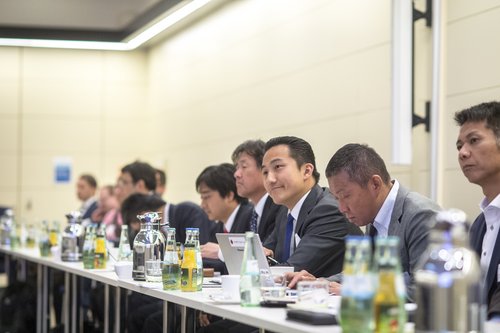Digital companies such as Google, Amazon or Facebook, whose business model does not require any physical presence in a certain location, benefit from an optimum use of tax loopholes and national tax advantages and pay minimal taxes on their enormous sales. Their contribution to community funding is therefore extremely low.
Online Event: Taxing the Digital Economy: Opportunities and Consequences

Digital companies such as Google, Amazon or Facebook, whose business model does not require any physical presence in a certain location, benefit from an optimum use of tax loopholes and national tax advantages and pay minimal taxes on their enormous sales. Their contribution to community funding is therefore extremely low.
Since 2012, the OECD has been working on a new taxation system to combat this undercutting “race to the bottom”, which is deliberately promoted by some countries, as well as the associated tax avoidance strategies. However, concrete proposals are not expected before mid-2021.
In 2018, the European Commission presented its own legislative proposals on the taxation of the digital economy, for which it received support from the European Parliament. But the EU member states have yet not been able to reach an agreement in the Council. As a consequence, various member states have taken action and introduced their own national regulations on a “digital tax”.
Why does taxing the digital economy seem so difficult? What pitfalls should be considered and what solutions are currently on the negotiating table?
The German Economic Institute (IW) and the Hanns-Seidel-Foundation's European Office have the pleasure of inviting you to join our expert’s discussion on these highly topical issues.
Distinguished speakers include:
- Markus FERBER, MEP, Coordinator of the EPP Group in the Committee on Economic and Monetary Affairs of the European Parliament; Chairman of the Hanns Seidel Foundation
- Dr. Tobias HENTZE, Senior Economist for Financial Policy and Tax Policy, German Economic Institute (IW), Cologne
- MDg Martin KREIENBAUM, Head of the Department for International Tax Law and EU Tax Harmonization in the Federal Ministry of Finance, Berlin and Chair of OECD’s Committee on Fiscal Affairs (CFA)
Moderation: Sandra PARTHIE, German Economic Institute, Head of Brussels Office
The event will take place online (Zoom Webinar) on Wednesday, 10 February 2021, from 2.00 pm to 3.00 pm. Conference languages are German and English (with simultaneous interpretation). Please find the programme attached.
We look forward to an exciting discussion.
Taxing the Digital Economy: Opportunities and Consequences
Program
More on the topic

Symposium: Digital Transformation and Globalization in Germany and Japan
This symposium Symposium of Japanese-German Center Berlin, Fujitsu Research Institute and Cologne Institute for Economic Research has brought together experts and affected companies from Germany and Japan to discuss their views on and strategies for digital ...
IW
CO2 Compendium on CO2 regulation for motor vehicles in Europe
The transportation sector faces special challenges in the process of decarbonisation, since the need for mobility – both for people and goods – is rapidly increasing around the world, especially in the emerging economies. Because of road traffic’s key position ...
IW